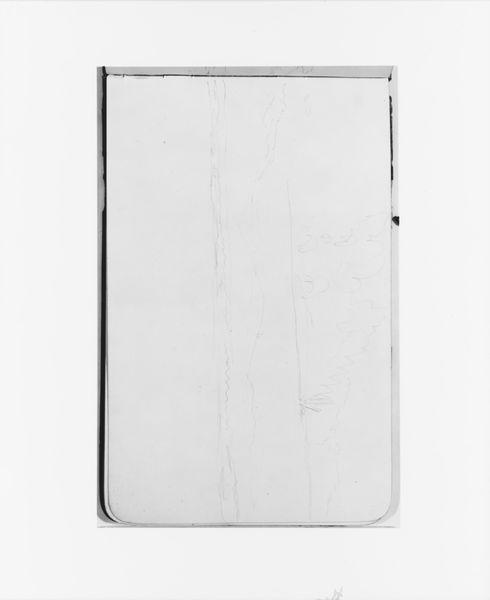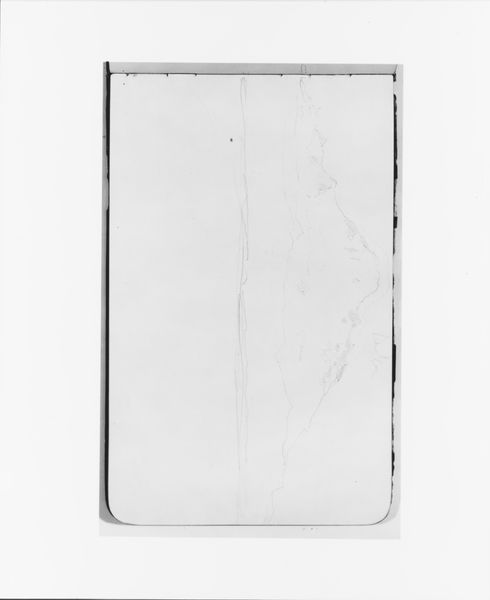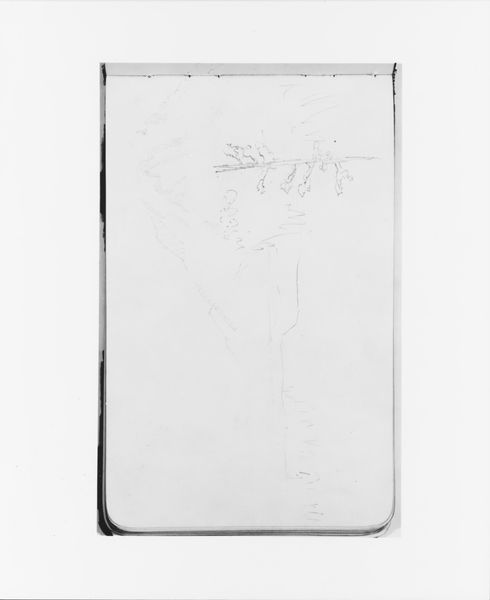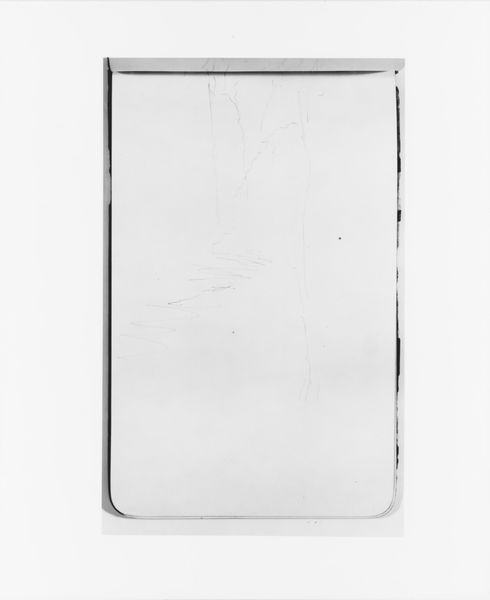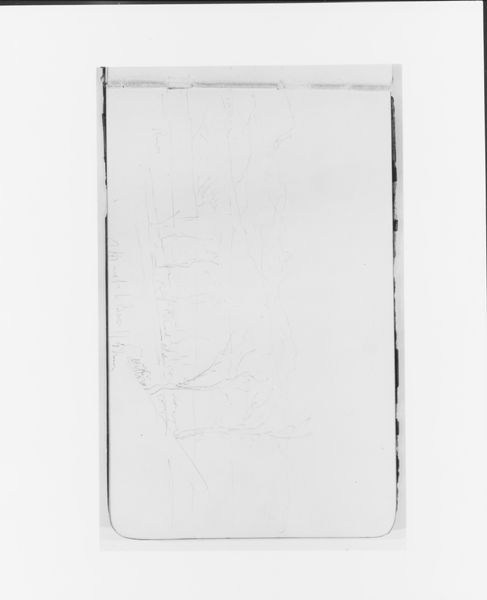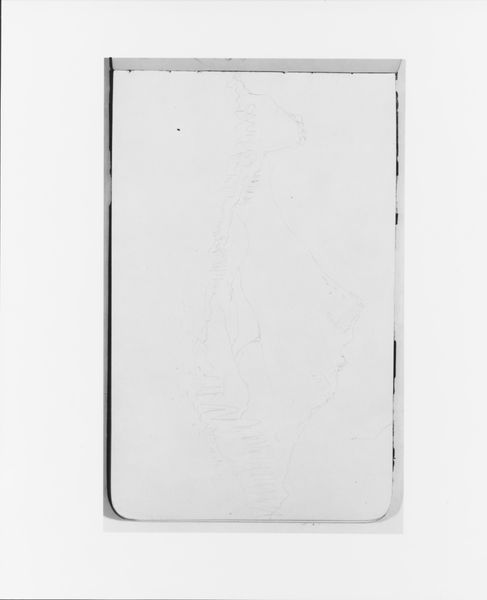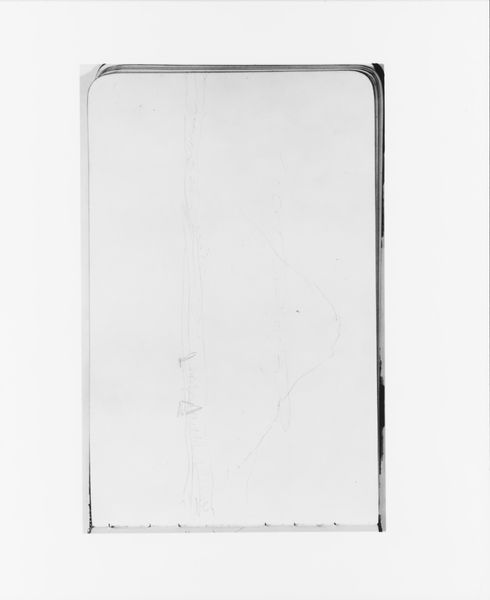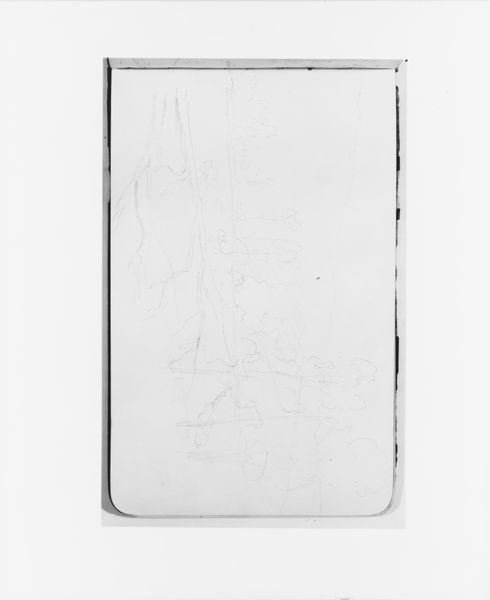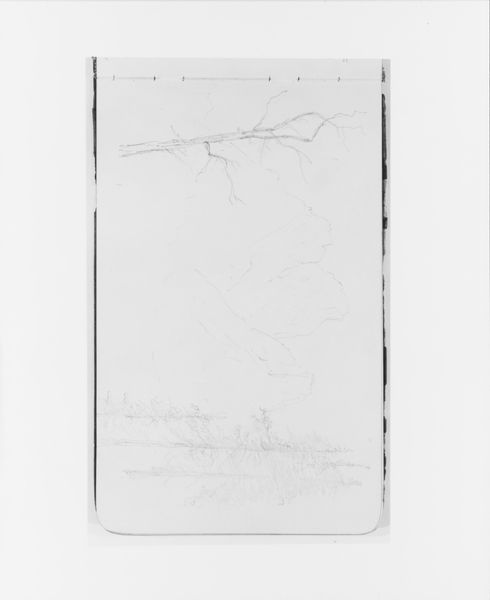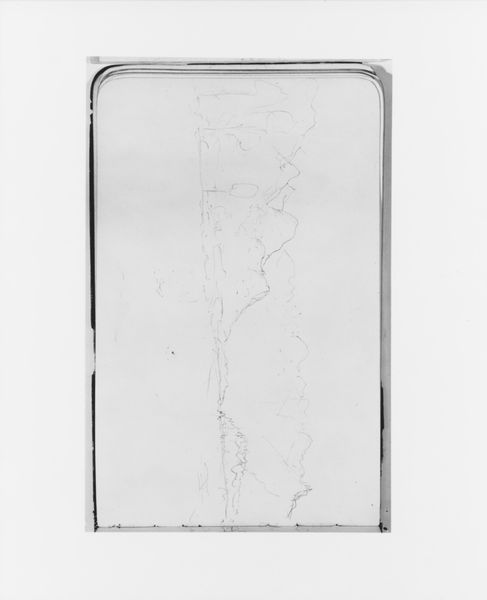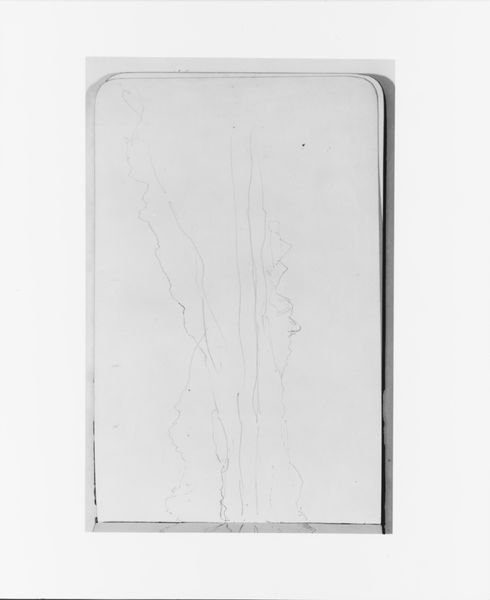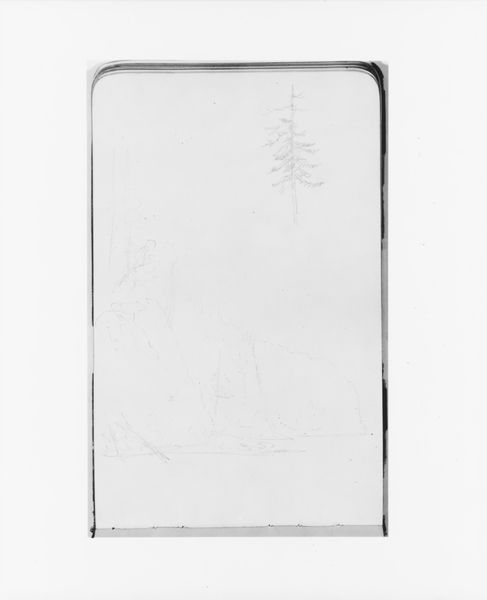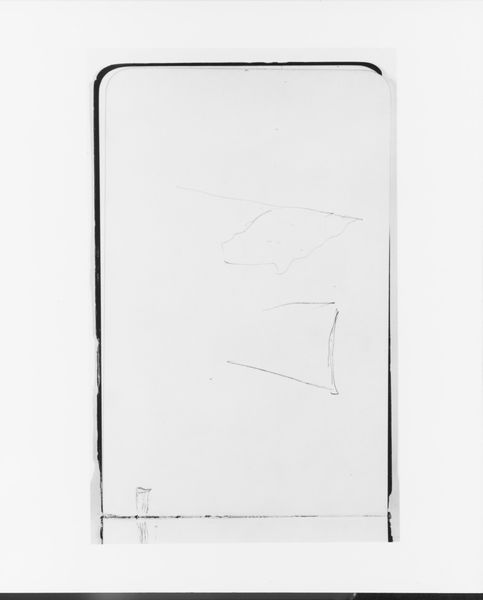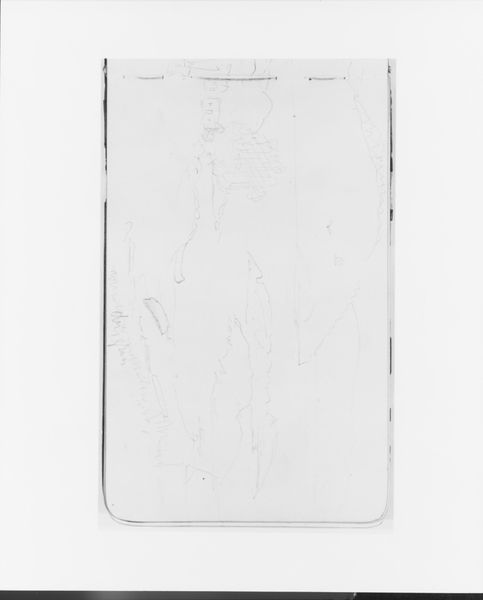
River Scene (Columbia _______?) (from Sketchbook) 1890
0:00
0:00
Dimensions: 4 3/4 x 7 3/4 in. (12.1 x 19.7 cm)
Copyright: Public Domain
Editor: This is Albert Bierstadt's "River Scene (Columbia ____?)" from 1890, it is a pencil and ink drawing. It’s just a quick sketch, but something about the vast open space makes me feel peaceful, almost solitary. What's your interpretation? Art Historian: It's interesting you feel that sense of solitude. Bierstadt, part of the Hudson River School, often depicted the American West as a sublime, almost untouched paradise. But considering the date, 1890, this idealized vision was already clashing with the reality of westward expansion and its impact on Native American populations and the environment. Do you think this sketch might reflect a conscious or unconscious awareness of that changing context? Editor: That's a great point. I hadn't considered the tension between the romantic ideal and the historical reality. It does look more sparse, less populated compared to his other paintings. How did these artistic representations influence public perception at the time? Art Historian: That’s the crux of it, isn’t it? These romanticized landscapes, exhibited widely, shaped public perception, encouraging settlement while often masking the brutal realities of colonization and resource exploitation. It’s a good reminder that even seemingly simple sketches are loaded with cultural and political baggage. What do you make of the composition? The vertical slash feels strange somehow. Editor: The vertical line almost cuts the scene in half. Maybe he planned to develop each half differently? Art Historian: Perhaps! Or perhaps this division reflects the social divisions of the time: civilization encroaching on nature, settlers versus indigenous people. Think of the power structures inherent in landscape art – who gets to look, who owns the land, who is erased from the view. Food for thought. Editor: That makes me see the sketch in a completely different light. It is no longer just a peaceful landscape but rather a window into the complex politics of its time. Thanks for pointing out what I missed initially! Art Historian: And you helped me remember the power that seemingly unfinished artwork can hold in its simple reflection of cultural anxiety. It's been enlightening.
Comments
No comments
Be the first to comment and join the conversation on the ultimate creative platform.
